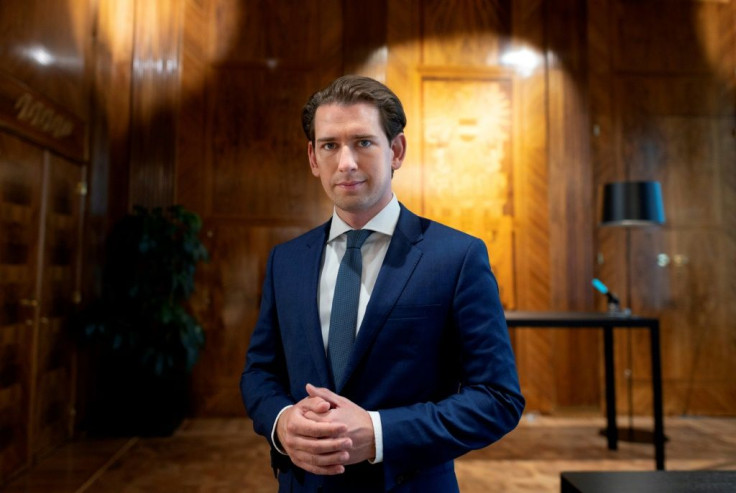EU Asylum-seeker Distribution Won't Work: Austria's Kurz
Austrian Chancellor Sebastian Kurz warned Tuesday against any attempt to force EU countries to take in asylum-seekers as the European Commission prepared to unveil a new strategy for handling migration to the bloc.
Speaking to AFP in an exclusive interview, Kurz alluded to previous efforts by the European Commission to introduce mandatory quotas for refugees for all EU members, which were rejected by many eastern and central European countries.
"We find that the distribution in Europe (of asylum seekers) has failed and many states reject this. It won't work like this," he said.
On Wednesday, Brussels will launch its latest proposal for EU asylum policy.
Home Affairs Commissioner Ylva Johansson wants the 27 member states to share the burden of handling asylum claims from migrants who arrive mostly on the bloc's southern shores in Greece, Italy and Spain.
She has again raised the idea of mandatory sharing.

Kurz said he welcomed that the European Commission was addressing the topic of asylum and migration.
"We can only solve this topic all together... Better protection of the (EU's) outer borders, a joined fight against smugglers, but also joined aid where it is needed (in countries where refugees come from), that is the path that is needed," the 34-year-old conservative leader said.
Austria and other smaller countries, such as Hungary, Poland, Czech Republic and Slovakia, have all spoken out in the past against any mandatory asylum-seeker distribution.
Kurz became the world's youngest chancellor when his conservative People's Party formed a coalition government with the far-right Freedom Party in 2017.
The coalition fell apart in 2019 after a corruption scandal engulfed the far-right leader, leading to fresh elections, where Kurz's party again gathered the most votes.
Kurz then formed a new coalition with the Greens, govering the small Alpine country of nearly nine million people since January.
© Copyright AFP 2024. All rights reserved.




















